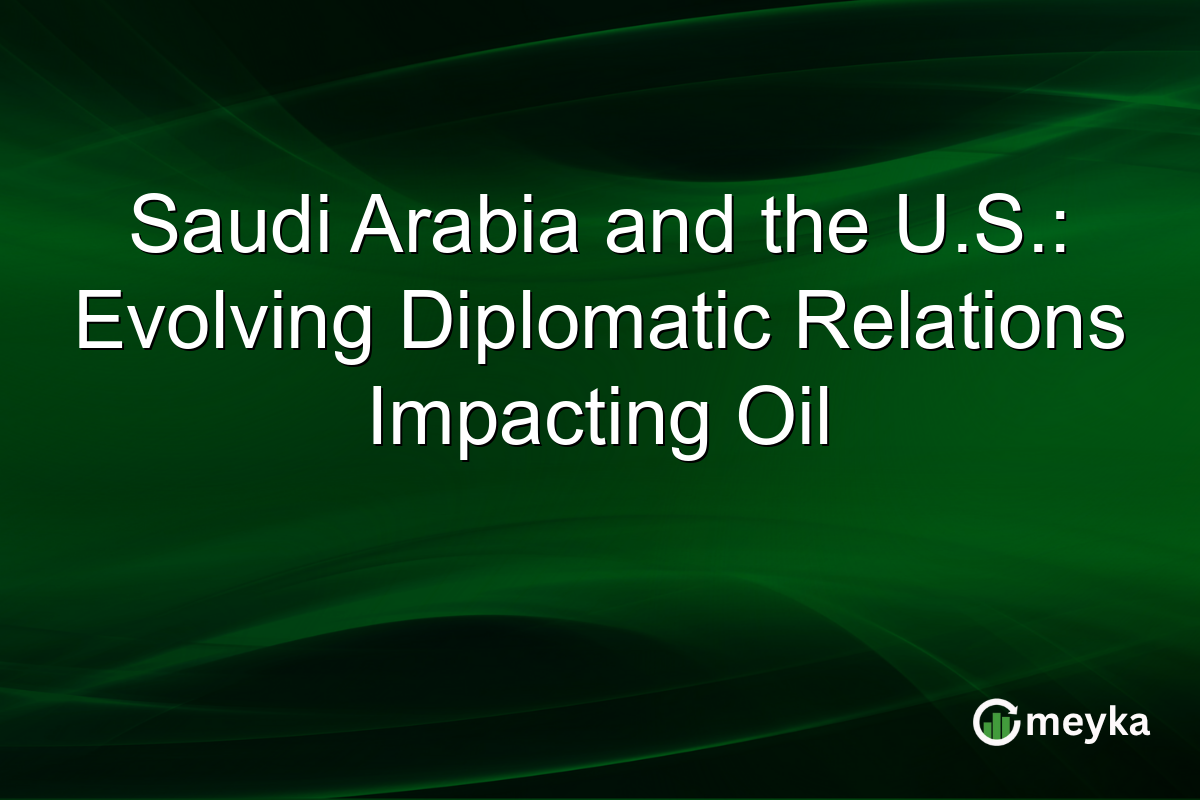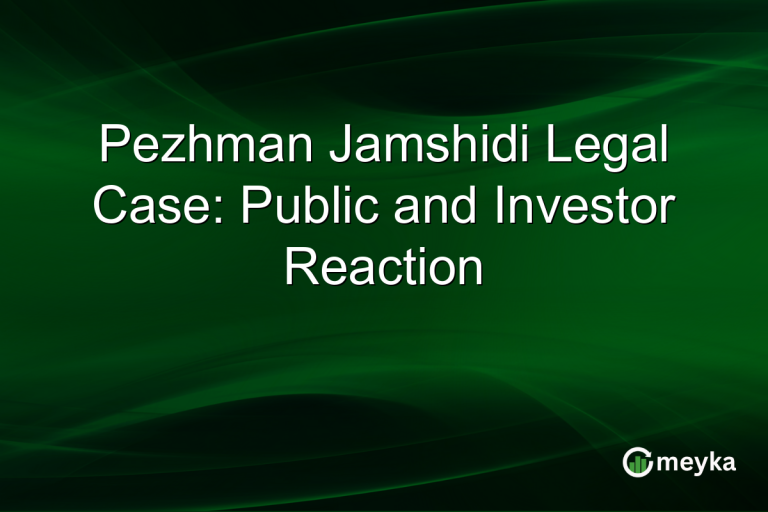Saudi Arabia and the U.S.: Evolving Diplomatic Relations Impacting Oil
Saudi Arabia and U.S. relations have undergone significant changes, presenting new dynamics in oil diplomacy and Middle Eastern politics. Historically, the ties between the two nations have seen periods of tension, particularly regarding oil production and pricing strategies. Recently, diplomatic engagements have signaled a shift toward collaboration, which can redefine energy markets globally. For investors, understanding these evolving diplomatic relations is crucial, as they hold implications for global oil prices and economic strategies.
Historical Context of Saudi Arabia-U.S. Relations
Saudi Arabia and the U.S. have shared a complex relationship, heavily influenced by their mutual oil interests and geopolitical considerations. Over the decades, their partnership has seen both cooperation and conflict. Key events, such as the 1973 oil embargo, highlighted the power dynamics of oil diplomacy. Despite occasional friction, the two have remained strategic allies, with recent diplomatic gestures suggesting a renewed focus on mutual benefits. This shift can potentially stabilize oil price fluctuations, directly impacting Indian import costs.
Recent Diplomatic Engagements
In 2025, Saudi Arabia and the U.S. have engaged in several high-level diplomatic meetings aimed at strengthening relations. These talks underscore a shared interest in stabilizing the Middle East and reducing dependency on oil as a solitary economic leverage. Such diplomacy not only benefits the bilateral ties but also influences the global oil market, potentially leading to more predictable pricing. Indian markets, which import a considerable amount of crude, stand to gain from this newfound predictability.
Impact on Global Oil Markets
The evolving Saudi Arabia-U.S. relations directly affect global oil markets. A collaborative stance can lead to increased oil production and lower prices, benefiting oil-importing nations like India. Additionally, this can deter speculative market activities, offering more stability. As oil remains a critical energy source, the cascading effects of stable U.S.-Saudi relations can lead to lower inflationary pressures in India, benefiting the domestic economy.
Middle East Politics and Investor Strategies
The diplomatic efforts between Saudi Arabia and the U.S. are reshaping Middle East politics by indicating a movement towards cooperative security and economic frameworks. This strategy may lead investors to reassess their portfolios, focusing more on stable, long-term returns rather than short-term gains from oil price volatility. For Indian investors, this signifies an opportunity to explore energy sector investments with renewed confidence in market stability.
Final Thoughts
The evolving diplomatic relations between Saudi Arabia and the U.S. have far-reaching consequences for both Middle Eastern politics and global oil markets. For investors, particularly in India, understanding these dynamics is crucial. The potential for stable oil prices and enhanced economic cooperation suggests a positive outlook. As these two powerful nations continue to shape their path forward, investors must stay informed and agile, ready to adjust their strategies to leverage the benefits of these evolving ties.
FAQs
The relations significantly influence oil prices by affecting production decisions. Collaborative ties can lead to increased production, stabilizing prices and benefiting countries reliant on oil imports, such as India.
In 2025, there have been high-level diplomatic talks focused on stabilizing the Middle East and economic cooperation. These efforts highlight a joint strategy towards reducing oil dependency.
Investors could see reduced market volatility and more predictable returns. Stable prices lower inflationary pressures, making energy sector investments more attractive to long-term strategies.
For India, stable relations can mean more predictable oil prices, leading to economic benefits. Reduced import costs can curb inflation, providing an economic advantage to the Indian market.
Investors should focus on long-term stability in the energy sector, leveraging lower volatility and predictable returns. This strategic focus can offset risks and enhance portfolio resilience.
Disclaimer:
The content shared by Meyka AI PTY LTD is solely for research and informational purposes. Meyka is not a financial advisory service, and the information provided should not be considered investment or trading advice.






